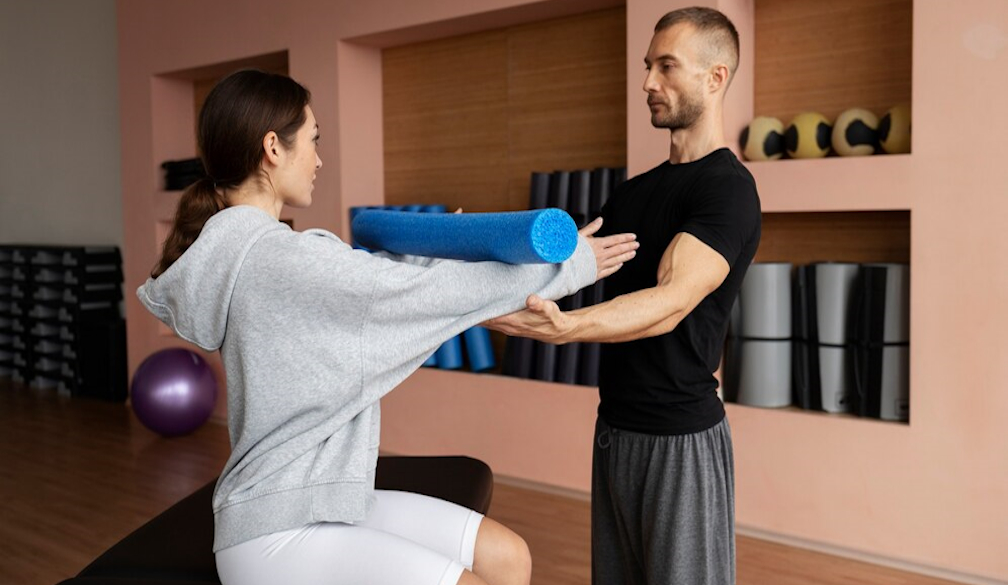The 4-Step Process of Rehabilitation with Auburn Physiotherapists

Rehabilitation is an integral step toward recovering mobility and independence after an injury or illness, and at Physiotherapist Auburn we take an organized and patient-centric approach in providing this crucial service to every one of our clients. Our four-step rehabilitation process caters to individual patient needs to promote effective healing and long-term well-being; with this comprehensive guide outlining each step involved and showing our physiotherapist's dedication.
Step 1: Comprehensive Assessment and Diagnosis
A successful rehabilitation program begins with a thorough assessment and accurate diagnosis. At Auburn Physiotherapists, this is our starting point; first conducting an in-depth evaluation of each patient's condition to ascertain a proper course of treatment; this may include;
Medical History Review
At our first consultation appointment with patients, we review their entire medical history including past injuries and surgeries as well as any underlying health conditions or diagnoses that might contribute to current injuries and how best to treat them. This information helps us better comprehend their current injuries while developing effective strategies for effective healing plans.
Physical Examination
Our physiotherapists conduct an in-depth physical exam in order to asses the extent and nature of an injury, identify painful points and assess range of motion. This may include:
- Palpation: Applying pressure to detect abnormalities.
- Mobility Tests: Assessing joint and muscle mobility capabilities.
- Tests: Measuring strength specific muscle groups.
At times, diagnostic imaging such as X-rays, MRIs or CT scans is necessary in order to obtain a fuller picture of an injury and pinpoint its location and severity for more targeted treatment approaches.
Step Two: Tailored Treatment Plan
Following our evaluation, the next step involves creating an individualized treatment plan tailored specifically for our patient's specific needs and designed to address the source of their issue, relieve their pain and restore functionality. This treatment will work toward eliminating root cause, mitigating symptoms and improving function as soon as possible.
Goal Setting
We collaborate closely with patients in setting realistic yet obtainable goals that help guide and motivate the rehabilitation process. Goals may include:
- Pain Reduction: Focused efforts at relieving discomfort through targeted therapies. Improved Mobility and Flexibility: Expanding range and flexibility while strengthening muscle to support recovery. Strength Building and Treatment Modalities (in order to support recovery).
At our treatment centers, our personalized plans integrate multiple modalities for comprehensive care. These may include:
Manual Therapy involves hands-on techniques used to mobilize joints and soft tissues. Exercise Therapy offers tailored exercise programs for improving strength, flexibility, endurance and stamina. Electrotherapy uses electrical stimulation to relieve pain while encouraging healing.
- Hydrotherapy: Aquatic exercises to facilitate movement and alleviate joint stress.
- Heat and Cold Therapy: Applying hot or cold packs to manage pain and inflammation.
Step 3: Active Rehabilitation
Active rehabilitation is an integral element to recovery; patients participate in structured exercises and activities designed to restore strength, flexibility, and functionality. Our physiotherapists carefully monitor progress while making necessary modifications in treatment plans to achieve maximum efficacy of our services.
Supervised Exercise programs
At Renew Healthcare Group, we develop customized exercise plans designed to target specific areas of weakness or injury and regularly update them based on patients' progress and feedback. Key components include:
- Strength Training: Exercise to build muscular strength and support injured areas.
- Flexibility Exercises: stretching routines designed to increase flexibility and avoid stiffness. Balance and Coordination Training: activities that aim to strengthen balance and coordination to reduce future injury risks, along with education and self-management techniques.
- Engaging patients: Understanding their condition and rehabilitation processes is integral for long-term success. At Pro Health Rehabilitation Group we can equip them with this knowledge. Our services include:
- Education Sessions: These informative sessions address injury prevention, proper posture, and body mechanics. Home Exercise Programs: Tailored exercise plans that patients can perform at home to maintain progress and make necessary lifestyle modifications that facilitate recovery while preventing future recurrences.
Step 4: Ongoing Support and Follow-Up
Rehabilitation does not stop once initial goals have been accomplished; at Auburn Physiotherapists we understand this well, providing on-going support in order to promote sustained healing and avoid future injuries. We ensure sustained progress with each client to guarantee sustainable recovery without risk of reinjury.
Regular Follow-Up Appointments
Our clinic schedules regular follow-up appointments with each patient in order to monitor progress, address concerns, and adjust treatment plans as necessary. These meetings play a crucial role for:
- Progress Evaluation: Assessing the efficacy of treatment, making modifications as necessary, and monitoring its progress over time. Preventive
- Care: Recognizing potential issues early and taking preventative steps against them. Patient Motivation: Engaging your patients throughout their healing journey while keeping them motivated in their recovery journey. Long-Term Wellness Programs (LTWP).
As part of our efforts to promote long-term health and wellbeing, we provide tailored wellness programs. These include programs focused on:
- Fitness Maintenance: Exercise routines to keep fitness levels stable and prevent future injuries.
- Nutritional Guidance: advice regarding healthy food to support overall health and recovery. Stress Management: techniques designed to manage anxiety and promote mental wellbeing.
Community Support At Rehabilitation Solutions Group we recommend patients participate in community support groups and events as a means of exchanging experiences, finding encouragement from others, and remaining motivated during rehabilitation processes.
Conclusion
Find a Physiotherapist that guarantees this 4-Step Rehabilitation Process and carefully orchestrates to promote efficient recovery and long-term well-being for each of the patients.
Through comprehensive assessment, customized treatment plans, active rehabilitation, and ongoing support we aim to assist each of our patients reach their health and mobility goals.
Our dedicated team of physiotherapists brings expertise, compassion, and a patient-centric approach at each step along their rehabilitation journey, striving to deliver top-quality care while giving our clients back their lives to live an improved quality of life!

